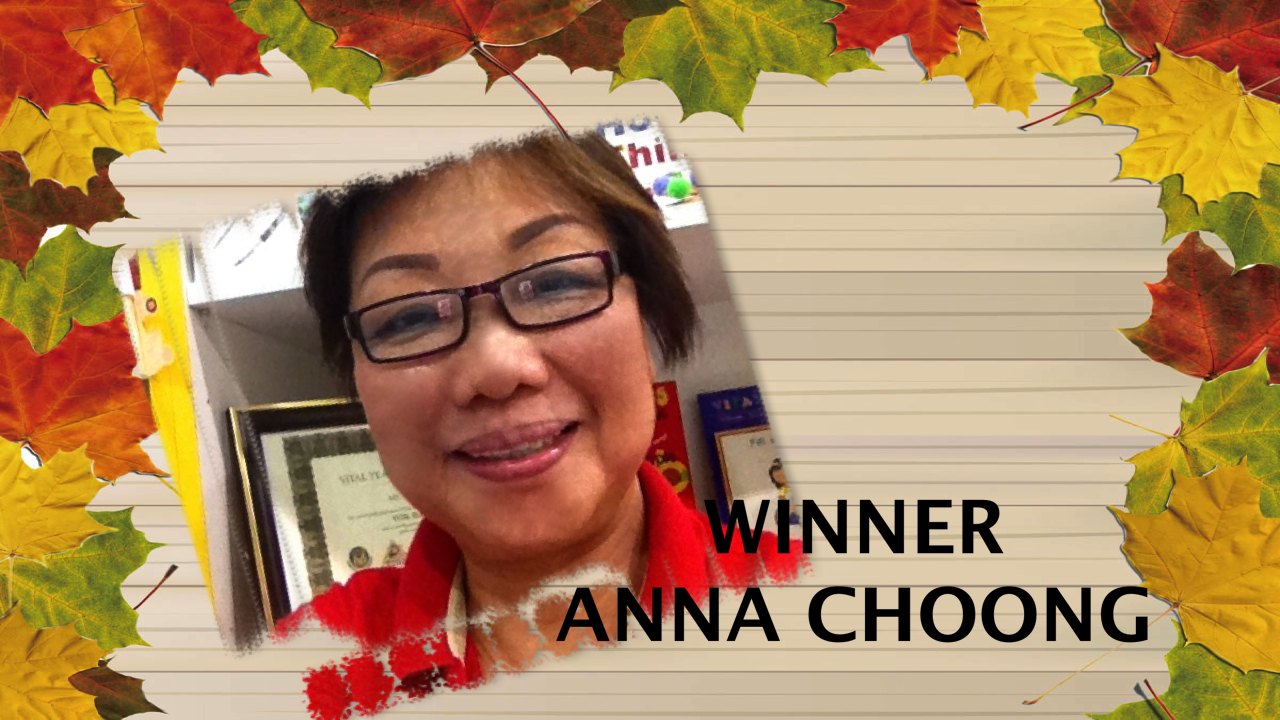GRAND PRIZE WINNER – ANNA CHOONG
Posted by admin on / 0 Comments
 INTERESTING PLACES I HAVE VISITED – ACCORDING TO THE FIVE SENSES
INTERESTING PLACES I HAVE VISITED – ACCORDING TO THE FIVE SENSES
Sight
One of the most beautiful cities I have visited was Rome. I’d read all about it, of
course – the history, the architecture, the art. Along with a small group of friends, I
wandered around the majestic columns and watched the colourful people that
thronged the city squares. As I was most definitely not an artist, I relied on my trusty
camera to record the sights around me, carefully storing used film rolls in their small,
black cylinders. Although the city was so small, everything seemed so big and so
grand. It was as if the memories were far too big to possibly fit onto those tiny rolls of
film.
Of course, in the end, we never did get to find out how many albums the numerous
photographs would fill. A thief made off with the contents of my backpack as I stood
gazing up at the Pantheon. All I was left with was a sliced bag and a camera with a
fresh roll of film. In the rush to replace my travel documents and credit cards, I didn’t
have a chance to document anymore of that trip.
Smell
I adore bread. It is a staple food for me, more so than rice or noodles. However, I do
not bake, nor does anyone in my family, or so I thought.
A few years ago, I attended my daughter’s graduation. In her final year of university
she shared a house with friends, where I stayed during my visit. The house was
surprisingly tidy, but what struck me as I entered was the smell of freshly baked
bread.
It turned out that she picked up baking during the weekends, and according to her
friends the kitchen had housed several bowls of rising dough just a few hours ago.
As I bit into a fluffy, warm, oat-topped roll, it occurred to me that my daughter was
finally, all grown up – I’d just visited her home.
Touch and taste
I was visiting some old friends in London and we had just returned to their home
after a long day that began with a long walk through a park and was followed by an
exhibition by a favourite artist of mine – Lowry – at the Tate Modern.
We trooped into the house to quickly freshen up, as we had a reservation at a posh
new restaurant nearby. My friends raved about the food, which was created with
complex recipes that seem to resemble science experiments more than food.
The restaurant itself was almost clinical in appearance. Shiny, polished surfaces
gleamed and stiff, white trim completed the appearance of a very expensive hospital.
The food, on the other hand was a complete juxtaposition to the décor. Unexpected
flavours burst in my mouth enhanced by different textures, each one unique yet
complimentary.
The final course was a lemon meringue pie. What we were served was what
appeared to be a large, waxy lemon each, accompanied by sticks of pastry. I
prodded the surface of the ‘lemon’ with my spoon. It gave slightly, not quite as firm
as a real lemon. When I cut into the skin, it crunched. It turned out that the ‘lemon’
was in fact a meringue shell, filled with lemon curd, which I was to dip the pastry
sticks into.
I don’t know if it was the theatre or the novelty of the presentation, but that was,
without a doubt the best lemon meringue pie I have ever eaten.
Hearing
Hokkien is a Chinese dialect originating from Southern China that is spoken in quite
a few places. However, there is something very unique about Hokkien when spoken
in Penang. I first heard the fascinating fusion of Hokkien with other local languages
when I was a child visiting the island from its neighbouring state – Kedah. My earliest
memories of Penang are filled with stuffy car journeys, followed by the refreshing sea
breeze as the ferry took us across the short stretch of sea. To a small town girl,
Georgetown was an immense place, filled with all sorts of lovely food and pretty
trinkets.
What stuck in my mind though, was the language. Although primarily spoken by the
Chinese of Penang, bits of Hokkien infiltrated the other languages and vice versa. To
me, it was a tangible manifestation of the way people lived there – their lives were
separated by cultures and backgrounds, but at the same time they couldn’t help but
be influenced by each other.
Having made those visits somewhat more permanent, I now speak Hokkien fluently,
local linguistic influences and all. To this day I still discover new things about
Penang. So perhaps it’s safe to say that the most interesting places we can visit,
sometimes, are just down the road.
Anna Choong, Full-time Centre Director, Tanjung Bungah (Penang).

Comments are closed here.